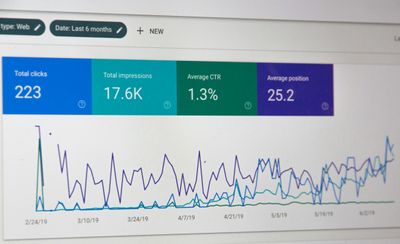How to research, build and refine an audience persona
Resources in a small business are often limited. Every dollar invested in advertising and promotion needs to work hard.
Creating audience personas gives you peace of mind that your marketing strategy is laser-focused for the highest chance of success.
By understanding your customers in detail, you will avoid generalisations, tailor messaging to tighter segments and cut through the competitors’ noise. The result is marketing targeted to the right person with the right message at the right time on the right channel.
What is an audience persona?
An audience persona, also known as a buyer persona or ICP (ideal customer profile), is a semi-fictional representation of your business’s model customer.
It’s a detailed character sketch that includes the characteristics, behaviours, preferences and needs of a specific segment of your target audience. Everything you need to visualise the individual is there, including:
- Demographics: Age, gender, location, income level, education, occupation.
- Psychographics: Interests, values, lifestyle, habits, goals, challenges, friendships, social influences.
- Buying behaviour: Favourite brands, preference for online or in-person, purchase triggers, pain points, brand loyalty.
- Personality traits: Social media use, weekend hobbies, relationships, affinities, aspirations.
Where a target market is a broad group of people who are likely to be interested in your offering, an audience persona gets specific.
A small business might define several audience personas, even within a small niche. Each persona represents a subset of potential customers with unique motivations, needs and characteristics.
Why is it useful?
Understanding your audience on a personal level helps with everything from your business name search to developing new products.
An audience persona is a cheat sheet for understanding your customer’s motivations, pain points and goals. These insights are especially useful for creating effective marketing campaigns.
However, they are more useful than just marketing.
- Data-driven planning
From conducting your first business name search to setting up a website to setting goals, knowing exactly who you’re dealing with ensures your decisions are geared for growth.
- Streamlined product development
Knowing your audience's needs makes it easier to develop products catering to their specific requirements.
- Efficient resource allocation
By focusing your efforts on the most valuable customer segments, you can avoid wasting money on ineffective marketing and earn loyalty from people who will grow your business.
- Competitive advantage
Detailed audience personas set you apart from competitors that take a one-size-fits-all approach to marketing.
- Better customer service
When you really know your customers, you can anticipate their needs, personalise after-sales support and communicate with empathy, leading to higher satisfaction and retention rates.
- Adaptation to changing markets
When faced with curveballs, a well-defined audience persona is a valuable reference to understand how your customers’ preferences and needs are evolving.
- Measurement and analysis
Comparing how different personas respond to campaigns, products and offers provides a framework for measuring success and making data-driven adjustments.
Four steps to create an audience persona
- Define your target audience
Most small business owners know at least a little about their target audience. For example, someone selling eco-friendly baby clothes will likely know that their product appeals to a certain age group and income bracket.
You can think of a target market as the larger umbrella covering multiple audience personas.
If you need help getting started, our guide to defining your target audience outlines how to focus your vision from “everyone” to a smaller, more relevant slice of the market.
- Gather data
Learn everything you can about your customers, both current and prospective. The more specific you are, the more useful your audience persona will be.
For example, your target market might be “millennials with young kids”. That’s fine for guiding strategic decisions, but the diversity within that group makes it easy to generalise your content and miss the mark.
Surveys, interviews, market research and focus groups refine your understanding of your customers’ needs, wants and pain points.
- Identify common themes
Group similar data and survey responses, watching for common threads. These insights are the starting point for unique personas representing sub-groups within your target market.
Focus on needs and motivations rather than demographic data. This will help you create audience personas that better represent the diversity within your target market.
For example, our baby clothing brand might appeal to “Sustainable Sal”, a young millennial who cycles to work, carries a Keep Cup, grows veggies and follows eco-friendly social media accounts. They also appeal to “Chris Quality”, whose $150k-a-year salary means they are motivated by quality more than price.
Sustainable Sal and Chris Quality are two entirely separate – but equally important – audience personas.
- Document your persona
What are Sustainable Sal’s goals when buying baby clothes? What are Chris Quality’s challenges? How does the brand reflect each of their values?
A well-defined audience persona answers these questions (and many more) based on data and research. Give your persona a name, age, occupation, hobbies and any other personality traits that bring them to life.
If you start straying into speculation, revisit the earlier steps to see if you can find evidence for your inference.
Registry helps you connect with customers and grow your business
When you know who you’re talking to, we’ll help you reach them. Our online business services are tailored to small businesses, with affordable website hosting, .au domain registration and custom email addresses to build your brand.
Plus, with a user-friendly business name registration and renewal portal, ABN registration and a local support team, you can bundle your business services to remove stress and save on admin costs.



